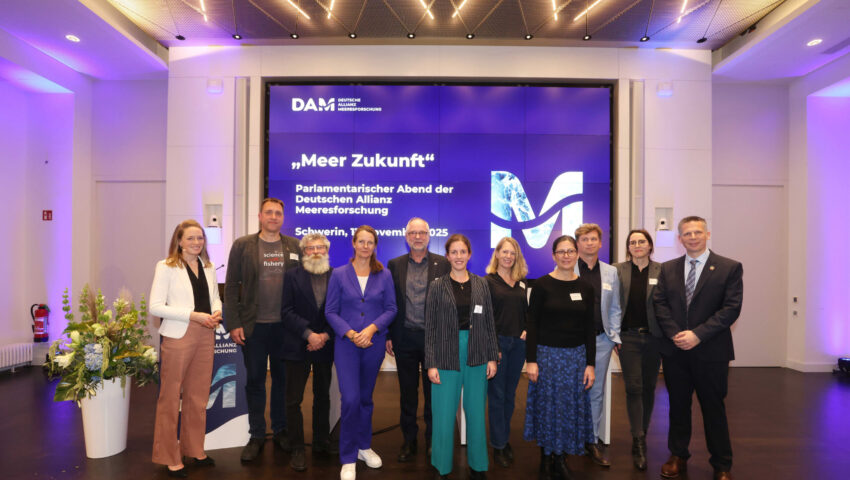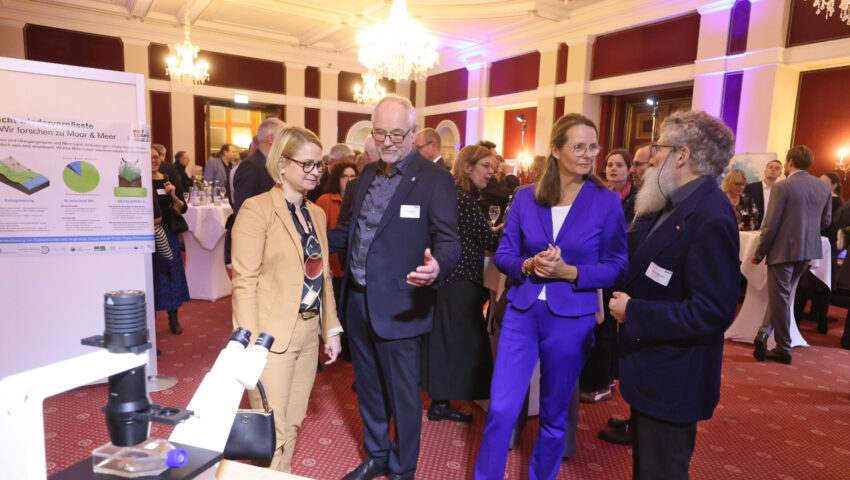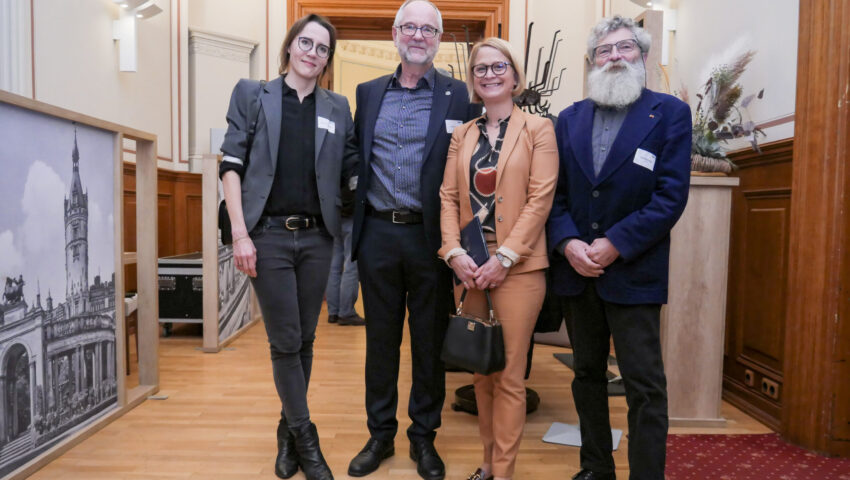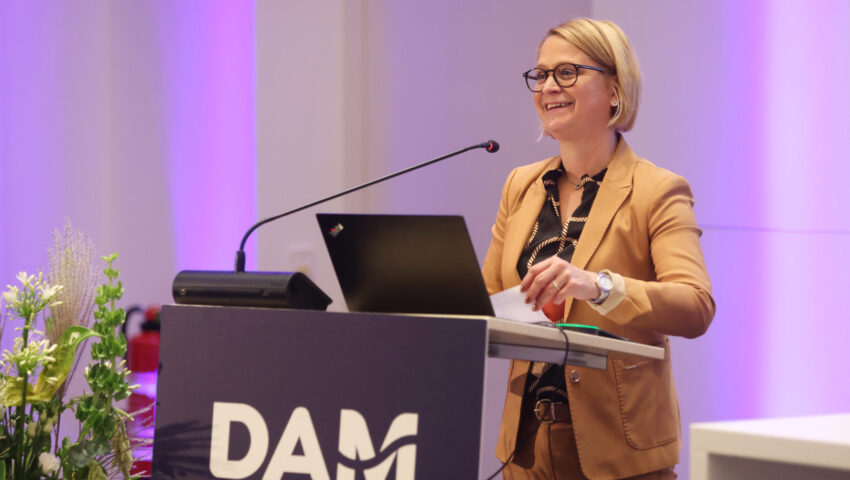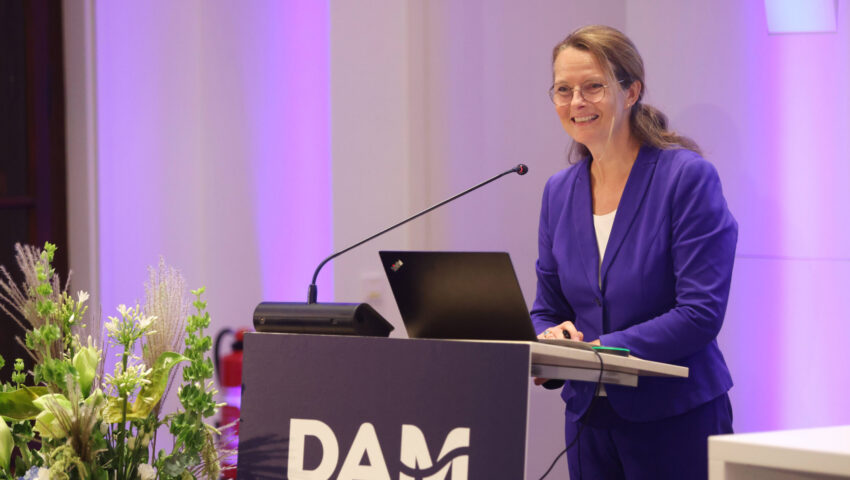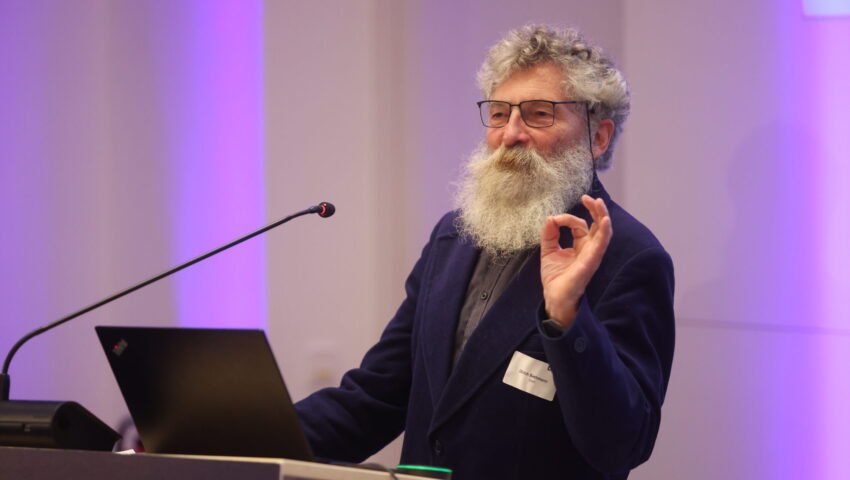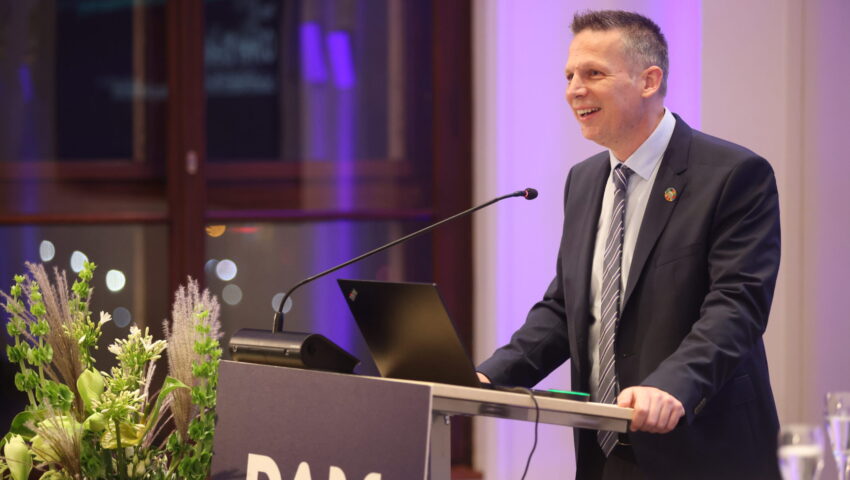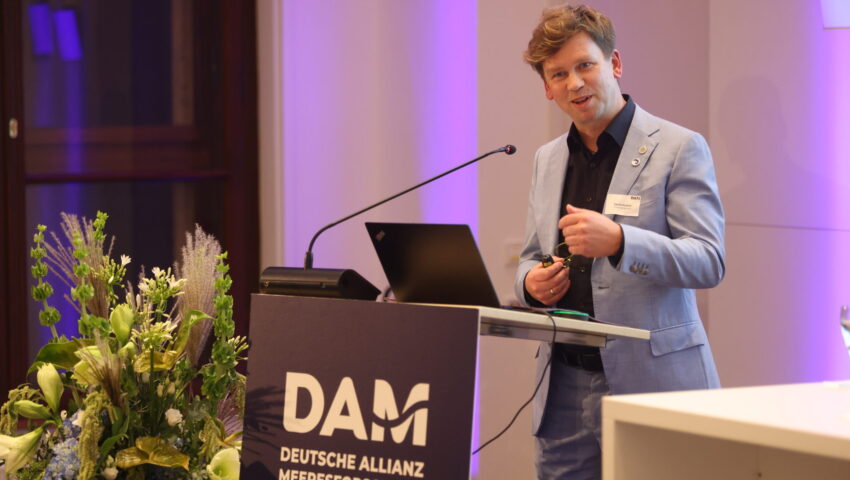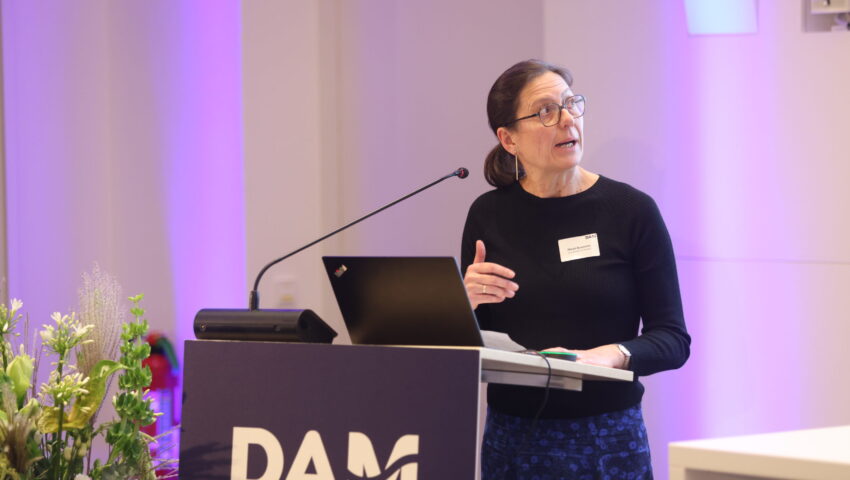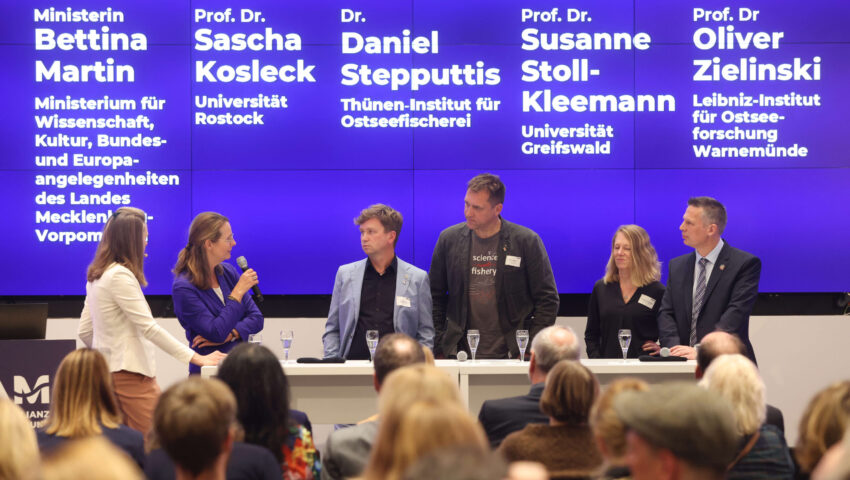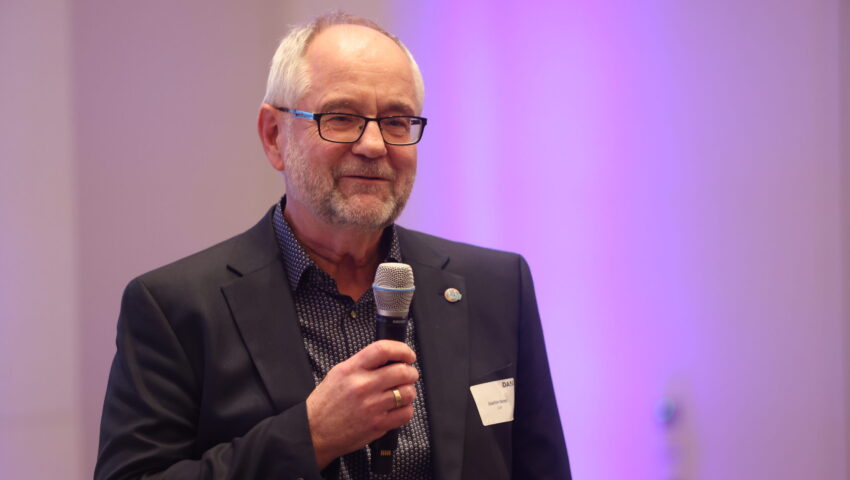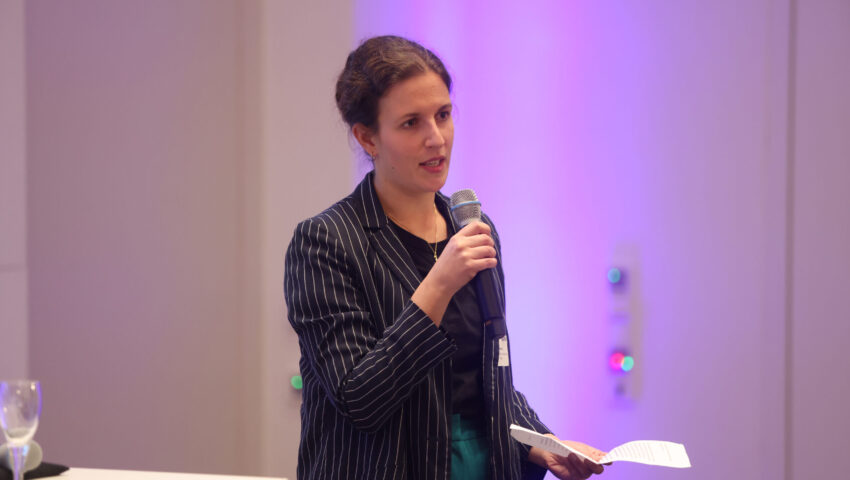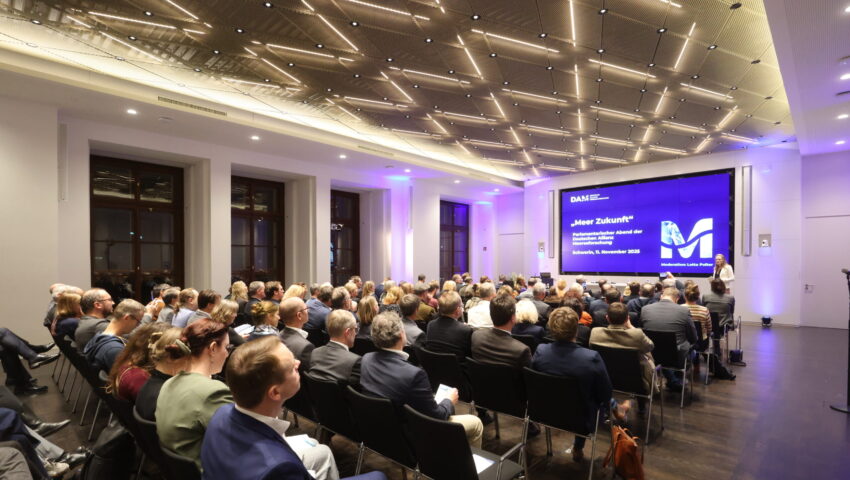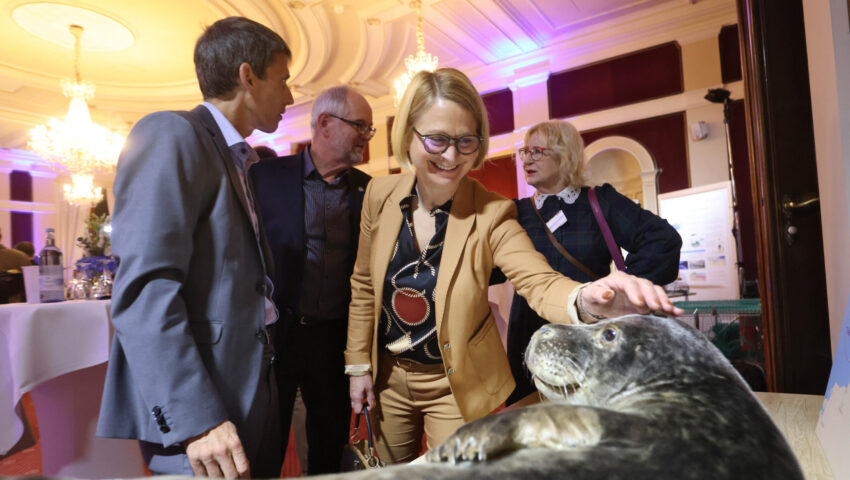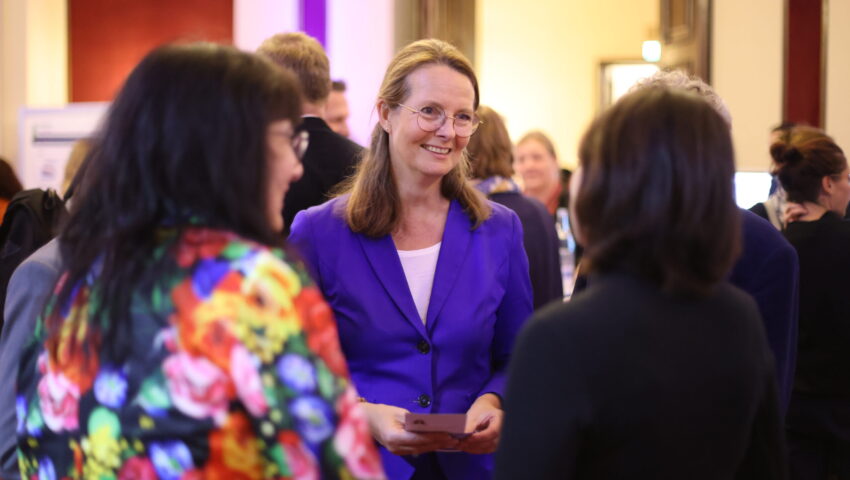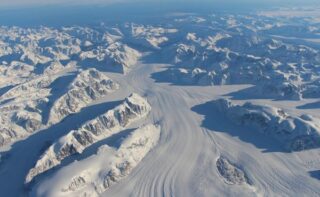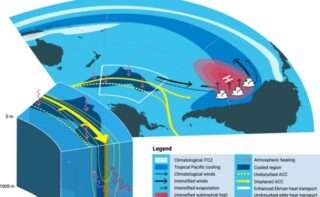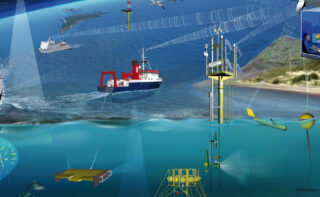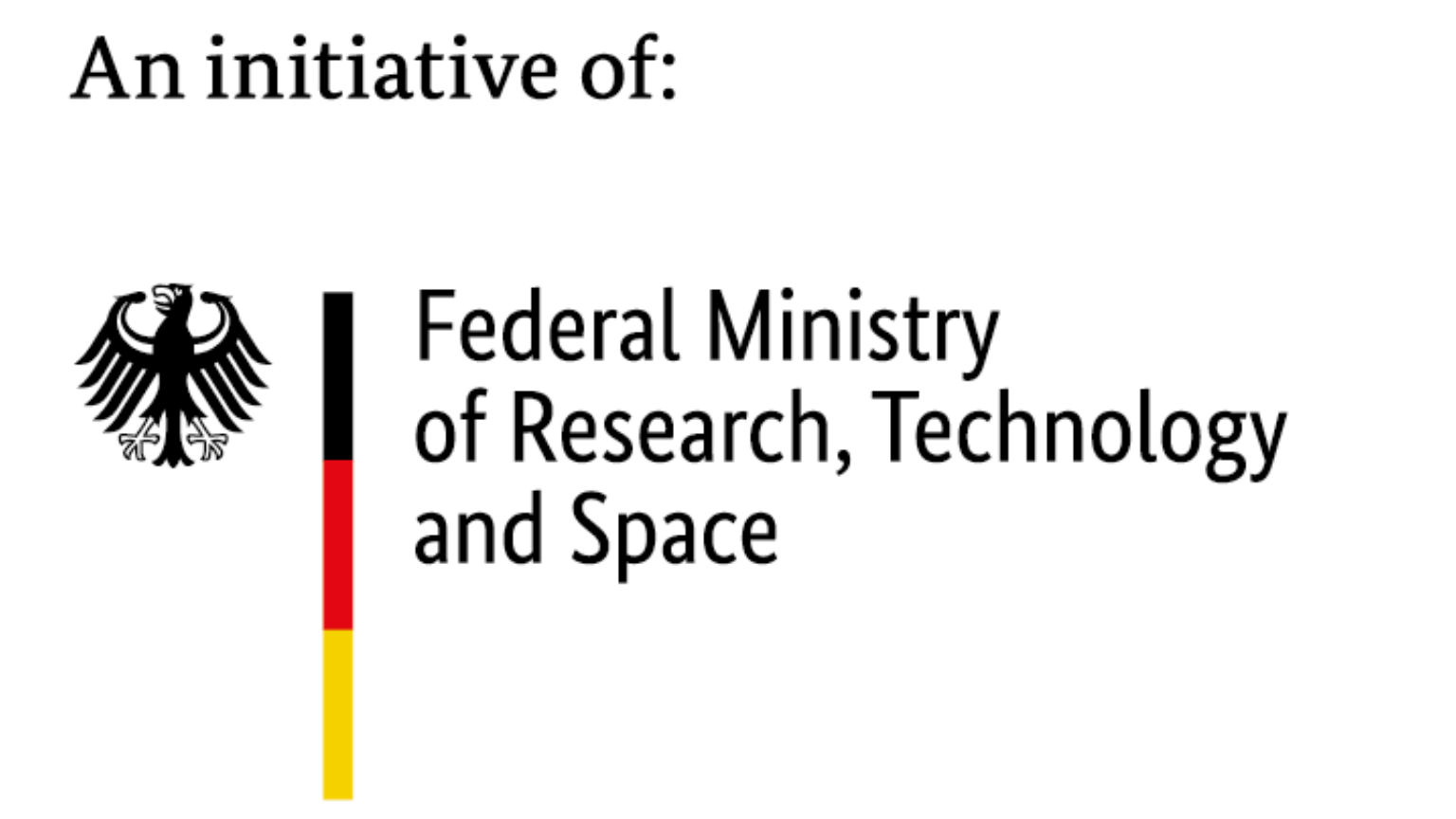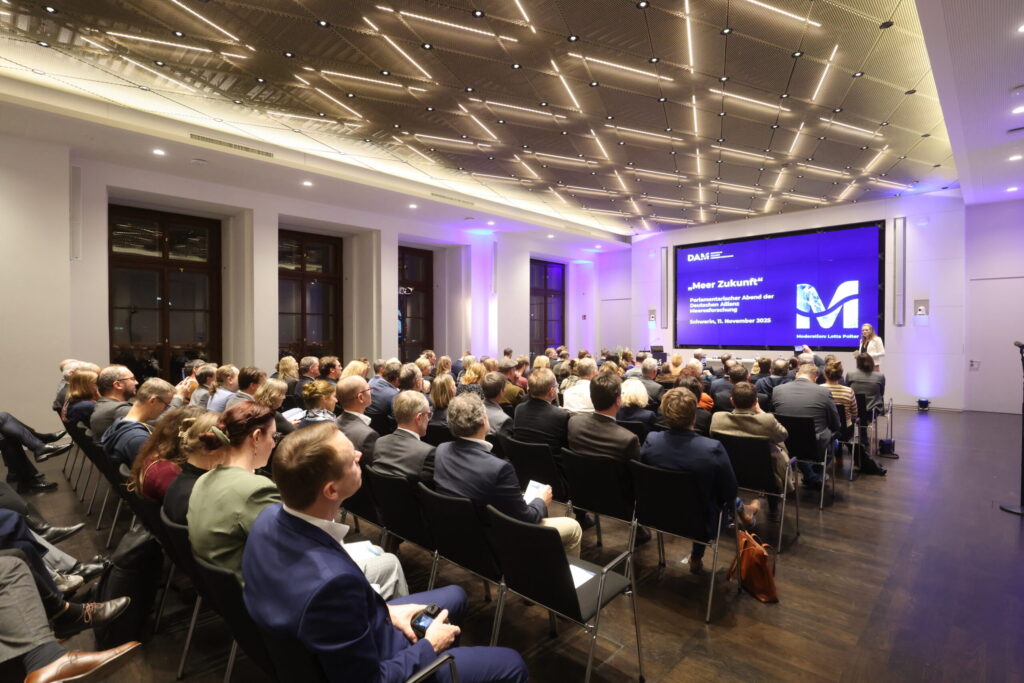
Together for the Baltic Sea
DAM parliamentary evening in Schwerin under the motto “Sea Future”
‘The challenges facing the Baltic Sea are complex, but they can be solved if all parties work together,’ was the key conclusion of the DAM parliamentary evening on November 11 in the state parliament building of Mecklenburg-Western Pomerania in Schwerin. Under the motto ‘“Sea Future””, around one hundred guests from politics, science, business and organised civil society discussed current research results, research-based strategies and options for action for a sustainable Baltic Sea.
The Baltic Sea is home to many competing interests in a small area, including fishing, tourism, energy production and resource extraction. The world’s largest inland sea is therefore struggling with a variety of problems such as overfertilisation (eutrophication), oxygen depletion and fish mortality, which affect marine ecosystems as well as the people who live with and from it. The evening’s speakers from politics and science agreed that in order to preserve this unique natural, cultural and economic area, it is imperative to reconcile the various interests and find synergies between sustainable use and protection of the sea.
The key findings of the evening were:
- A healthy Baltic Sea is vital for all of us: in terms of health, the economy and, given the current geopolitical situation, security.
Protecting the Baltic Sea is an immense task that can only be accomplished if research, business, politics and education work together at national and international level. The task of (marine) research is to provide technological innovations and options for action to support political and social decisions. - Some of our activities on land have an enormous impact on the sea. Solutions must therefore always take the land and shore into account.
- In addition, the support of the population is needed. The aim must therefore be to create points of contact and acceptance. Most people love the sea. Many are willing to commit themselves to its protection.
- And let’s not forget: in order to shape the future, the younger generation must also be involved.
The DAM as a network partner for politics
The DAM has created a unique network to effectively unite the various interests in the German Baltic Sea region, emphasised Birgit Hesse, President of the Mecklenburg-Western Pomerania State Parliament, in her welcoming address, thanking the DAM for its achievements as a ‘flagship for Mecklenburg-Western Pomerania and the whole of Germany’.
With its 2,000-kilometre-long coastline, marine research is an important strategic focus for Mecklenburg-Western Pomerania, added Bettina Martin, Minister for Science, Culture, Federal and European Affairs, in her welcoming address. By linking different areas and disciplines, the DAM is taking on a pioneering role in applied, solution-oriented research and helping to find complex solutions for the sustainable management of the Baltic Sea – thereby also making a visible contribution to the state’s high-tech agenda.
Perspectives from science: Sustainable strategies and cooperation in the Baltic Sea region
In two keynote speeches, scientists from DAM member institutions and DAM research missions used various research projects to demonstrate the contribution that German marine research can make to the sustainable management of the Baltic Sea and its risk management:
Oliver Zielinski, Director of the Leibniz Institute for Baltic Sea Research Warnemünde, used examples from the DAM research missions CDRmare (‘Marine carbon sinks in decarbonisation pathways’) and sustainMare (‘Protection and Sustainable Use of Marine Areas’) to present research-based strategies in the context of climate change, species loss and intensive use. Among other things, he provided insights into current research projects on the role of seagrass beds in carbon capture, sustainable fisheries and the impact of offshore wind farms on marine ecosystems.
Sascha Kosleck, Head of the Chair of Marine Technology at the University of Rostock, added examples of risk management in the Baltic Sea: He presented options for dealing with natural hazards such as storm surges and cyanobacterial bloom from the DAM research mission mareXtreme (‘Paths to improved risk management in the area of marine extreme events and natural hazards’) as well as for protecting critical infrastructure and dealing with munitions contamination from the CONMAR project (DAM research mission sustainMare). Physical and digital attacks on critical maritime infrastructure such as ports and security, supply and energy facilities have emerged as comparatively new threats.
Margit Bussmann, Head of the Chair of International Relations and Regional Studies at the University of Greifswald, emphasised the importance of trust and cooperation between the Baltic Sea states in view of geopolitical tensions, military presence and hybrid threats. Germany and Mecklenburg-Western Pomerania play a central role in security and foreign policy, while research as a partner provides the basis for sound political decisions.
Courage and cooperation as prerequisites for a secure future for the Baltic Sea
In order to protect the Baltic Sea in the long term and secure its future, a combination of courage, cooperation, scientific expertise and social participation is needed, according to representatives from science and politics who contributed their expertise to the subsequent panel discussion ‘Perspectives for the Baltic Sea – Solutions for the sustainable development of coasts and seas’. The participants formulated key requirements for promoting a sustainable approach to the Baltic Sea:
- Politicians need courage and confidence in the support of the society to decide on comprehensive measures to protect the Baltic Sea based on scientific findings. For many people, sustainable use of the sea does not mean sacrifice, but rather an expression of solidarity and cultural identity.
- Science should communicate its findings even more strongly and comprehensibly in order to reach people – ideally in harmony with politics.
Because, to quote one of the evening’s speakers: ‘The sea will remain, with or without us. We decide whether our coastline has a future for us.’
To the programme overview of the parliamentary evening.
Header photo: Danny Gohlke
Newsletter
Always up to date with the DAM newsletter. (German only)
